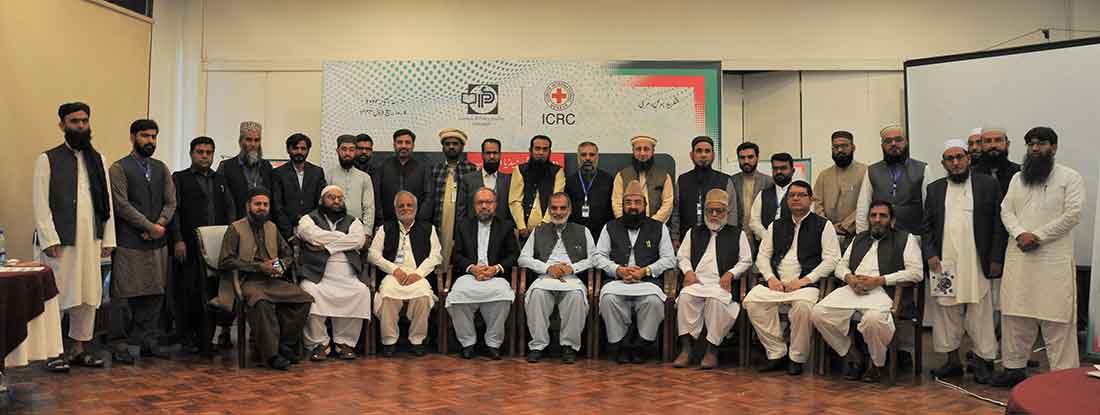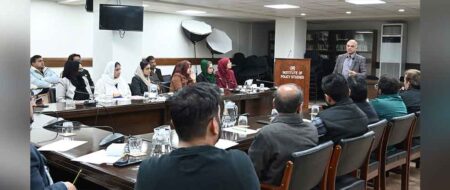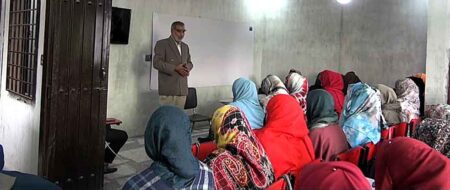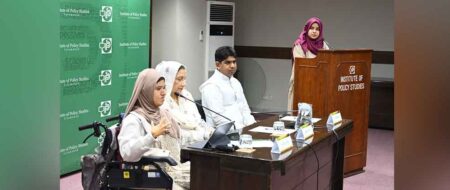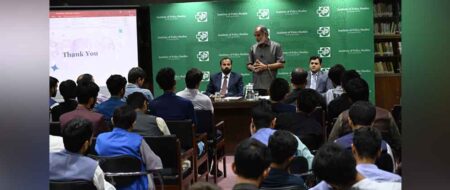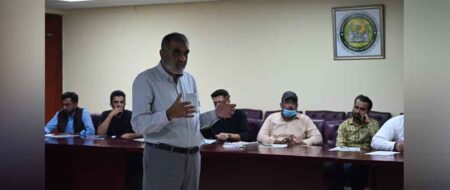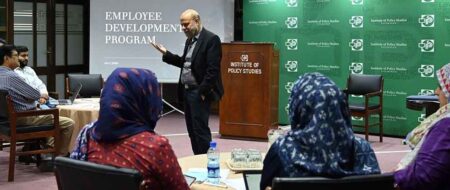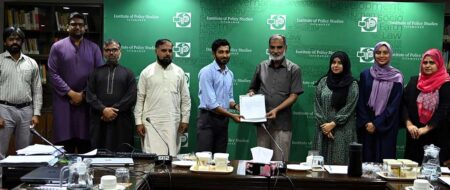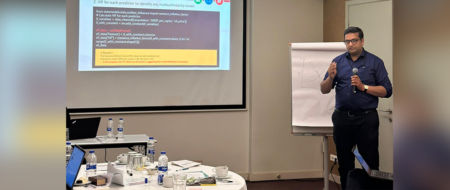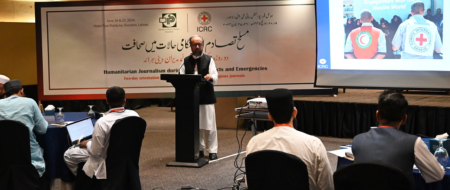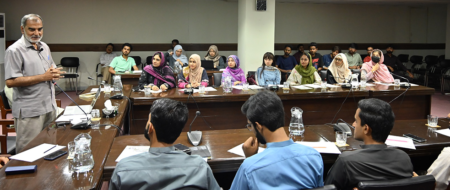National Media Workshop on Humanitarian Journalism for Islamic Periodicals
Aimed at honing the skills and capacity of the editors of Islamic periodicals while reporting and analyzing armed conflicts, violence and natural disasters, a two-day ‘National Media Workshop on Humanitarian Journalism for Islamic Periodicals’ was co-organized by IPS and the International Committee of the Red Cross (ICRC) on October 6-7, 2022 at a private hotel in Murree.
The first session included mutual introduction of the event participants, followed by the lectures by Dr. Ziaullah Rahmani, regional advisor of the ICRC on Islamic Law & Jurisprudence, and Dr. Kamran Azam, Associate Professor, The University of Haripur. Dr. Rahmani delivered an insightful talk on humanitarian disaster & humanitarian principles, while Dr. Kamran Azam talked about forms of humanitarian disaster and its sensitivities.
Professor Dr. Muhammad Mushtaq, chairman department of law at the Mirpur University, AJK, apprised the audience about the international humanitarian law and humanitarian principles in context of the Islamic law of war.
Azam Khan, a representative of a British broadcasting agency, talked about field reporting in afflicted and war-torn areas. He stressed that the Islamic periodicals need to be equipped with modern tools and manners of reporting.
A study circle was also organized for the participants on the topic, “Humanitarian Organizations and the Basic Principles”. Arif Khalil, a social worker from the Helping Hands for Relief and Development—HHRD, conducted this session and enlightened the audience regarding the basic principles which humanitarian groups follow.
While sharing his insights on practical journalism, Zarar Khan, a seasoned teacher of journalism and a reporter himself, illustrated instances of how emotions need to be kept apart while reporting humanitarian scenarios, and writing editorials, columns, and articles.
On the second day of the workshop, Faizullah Khan, reporter of a private TV channel, and Waqar Bhatti, Islamabad-based health reporter of a renowned media group, talked about different aspects of journalism including health issues during natural disasters
At the conclusion of the workshop, Khalid Rahman identified that there is a communication gap in journalism that hinders the recipients from receiving the intended information or message, which can create problems and divide in the society.
Given the fact that atheism is the second fastest-growing group across the world, he pointed out, it is particularly crucial to bridge this gap in Islamic journalism by retracing the shortcomings in the way a message is communicated to retain a maximum impact and reach.
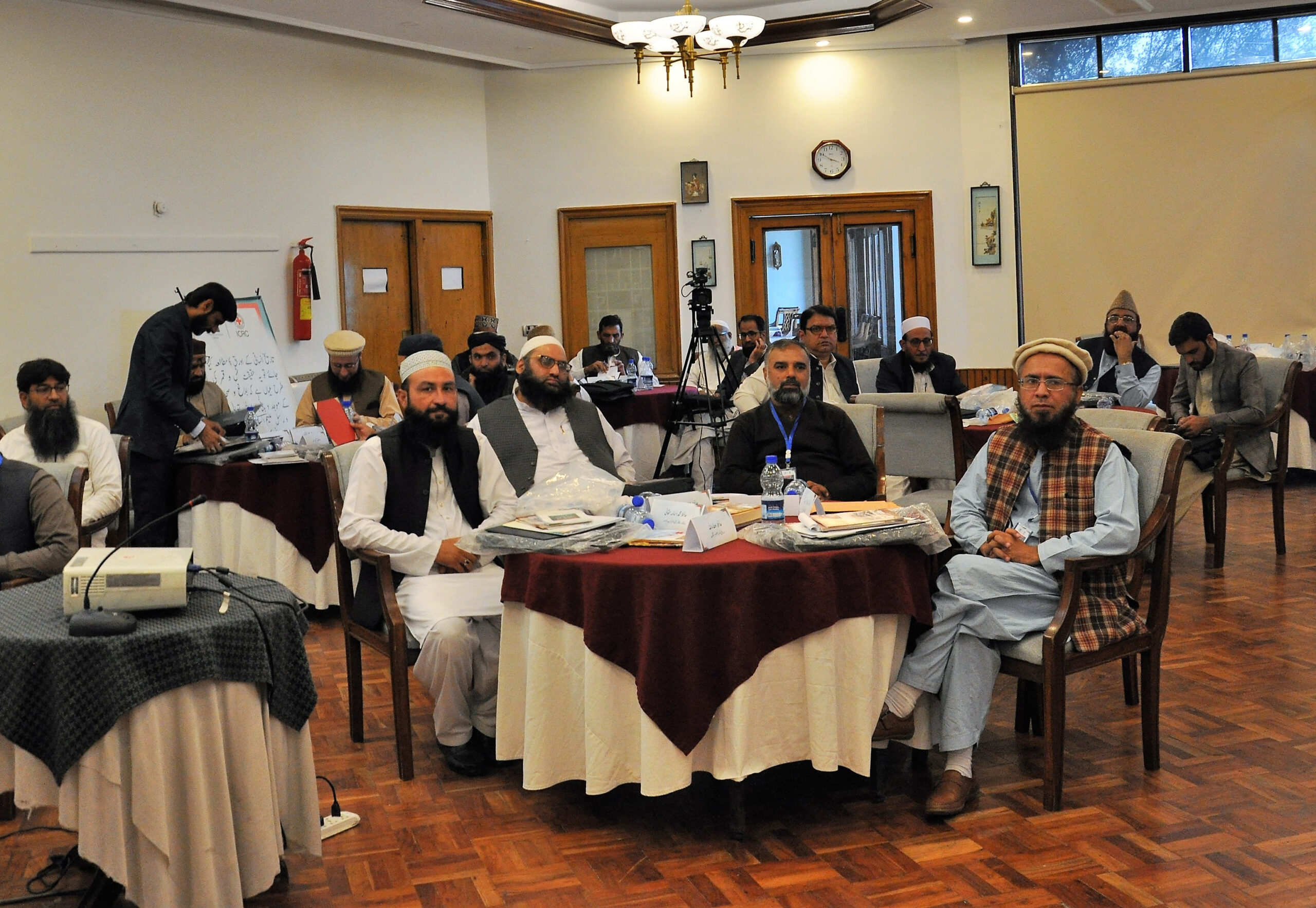 |
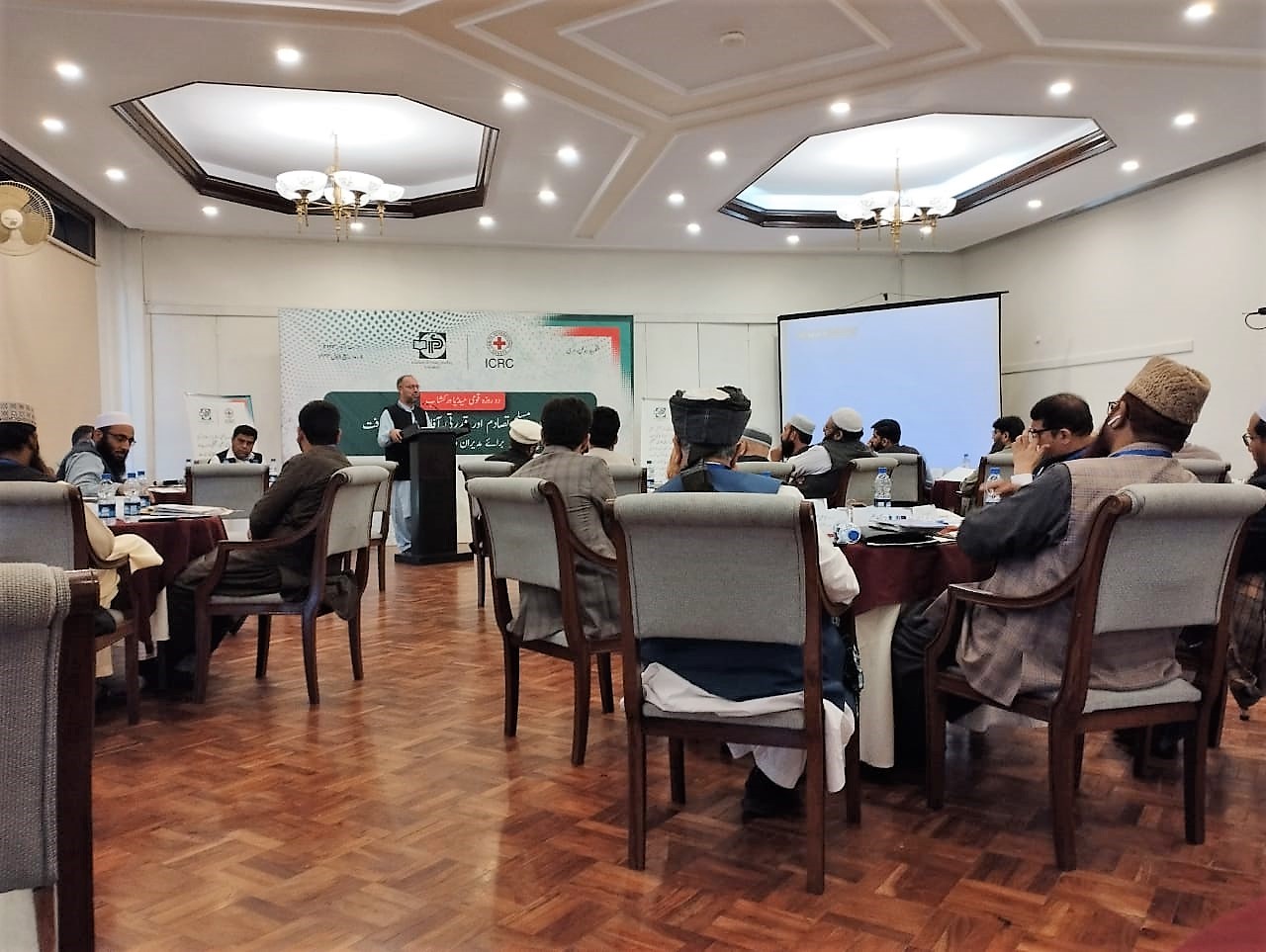 |


